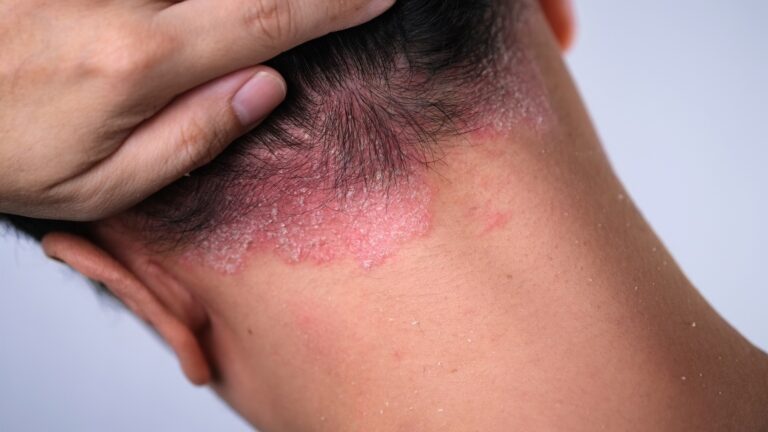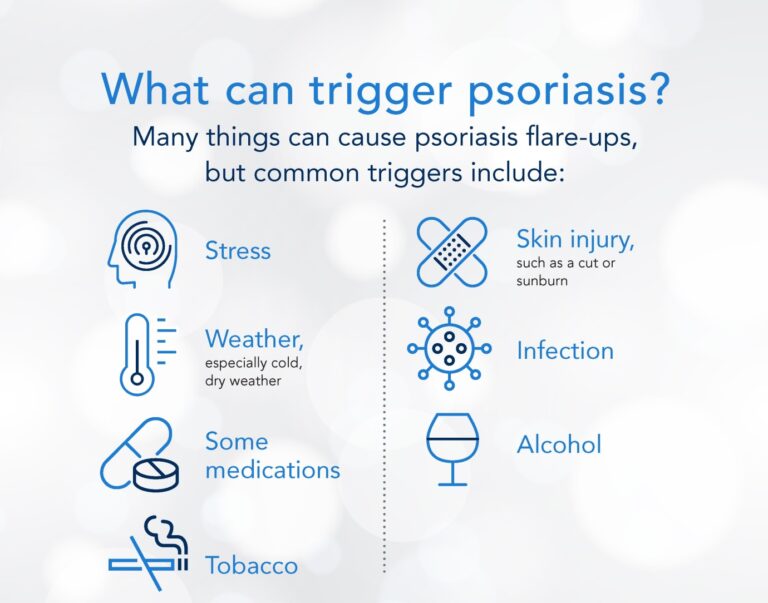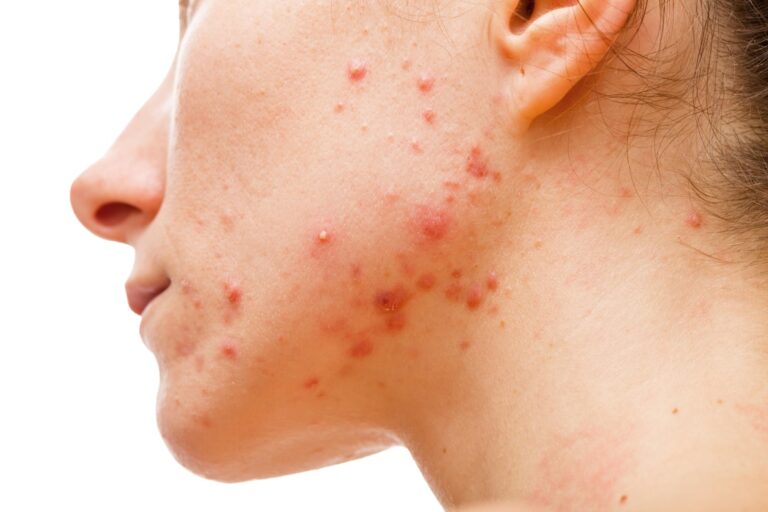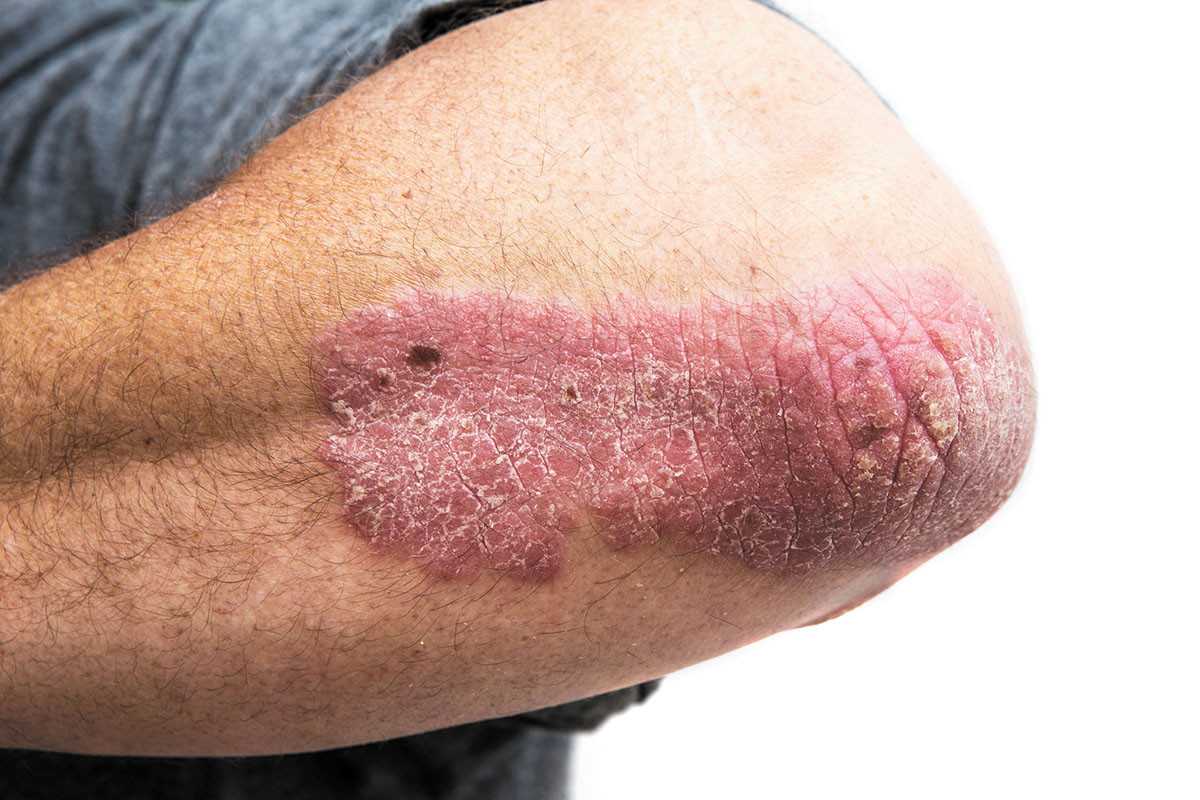What is psoriasis?
Psoriasis is a long-term (chronic) autoimmune skin condition that causes red, inflamed patches covered with silvery-white scales. These patches, also known as plaques, can be itchy, painful, and uncomfortable.
What causes psoriasis?
Psoriasis happens when the immune system mistakenly attacks healthy skin cells. This triggers the body to produce new skin cells much faster than normal. The build-up of these cells on the surface leads to thick, scaly patches and inflammation.
What are the symptoms of psoriasis?
Symptoms can vary but often include:
- Red, raised, scaly patches on the skin (plaques).
- Flaky, dandruff-like scales on the scalp (scalp psoriasis).
- Itching, burning, or stinging sensations.
- Cracked, dry skin, especially on the palms and soles (palmoplantar psoriasis).
- Thickened skin in long-standing cases.
- Joint pain or stiffness in psoriatic arthritis.

What triggers psoriasis?
Psoriasis can flare up due to various triggers, which differ from person to person. Common triggers include:
- Stress.
- Smoking and alcohol.
- Infections (such as sore throat, malaria, or viral infections).
- Certain medications (like beta-blockers or anti-malarials).
- Skin injuries (cuts, burns, or even sunburn).

What are the different types of psoriasis?
Psoriasis can present in several forms:
- Plaque psoriasis: The most common type, with red, scaly patches.
- Guttate psoriasis: Small, drop-like spots, often after infections.
- Inverse psoriasis: Smooth, red patches in body folds (armpits, groin).
- Pustular psoriasis: White, pus-filled blisters surrounded by red skin.
- Erythrodermic psoriasis: A rare but severe form with widespread redness, scaling, and discomfort over most of the body.

How is psoriasis diagnosed?
Diagnosis is usually based on a physical exam and medical history. In uncertain cases, a skin biopsy may be done to confirm the condition and rule out other skin disorders.
What are the treatment options for psoriasis?
Treatment depends on the type and severity of psoriasis and may include:
- Topical treatments: Steroid creams, vitamin D analogs, moisturizers, and medicated shampoos to reduce scaling and inflammation.
- Phototherapy: Controlled exposure to ultraviolet (UVB or UVA) light, including full-body phototherapy or targeted Excimer laser treatments.
- Systemic medications: Oral or injectable drugs that affect the immune system, used in moderate to severe cases.
- Biologics: Advanced injectable medications that specifically target immune system pathways involved in psoriasis.
Can psoriasis be cured?
There is currently no cure for psoriasis, but it can be effectively managed. With the right treatment and lifestyle changes, many people can keep their symptoms under control and lead a normal life.
How can I manage psoriasis day to day?
Along with medical treatment, these self-care tips can help:
- Keep your skin well moisturized at all times.
- Avoid known triggers like stress, alcohol, smoking, processed foods, and lack of sleep.
- Maintain a balanced lifestyle with healthy eating, regular exercise, and stress management.
- Stay in touch with your dermatologist and consider joining a support group for guidance and encouragement.

